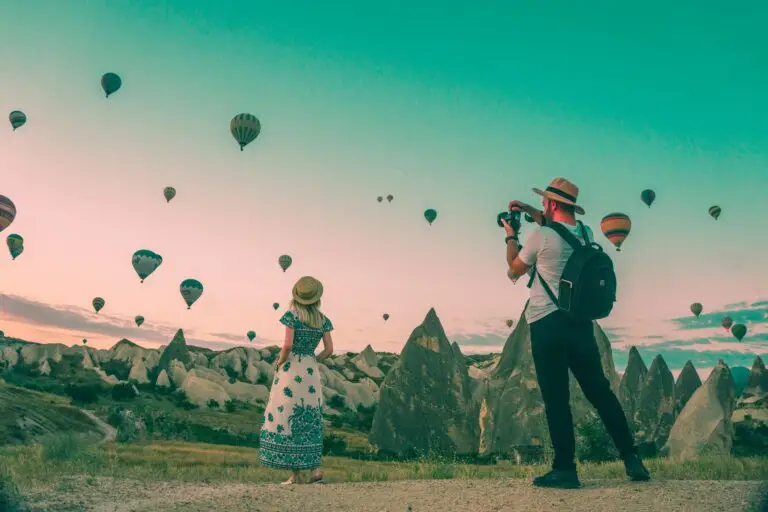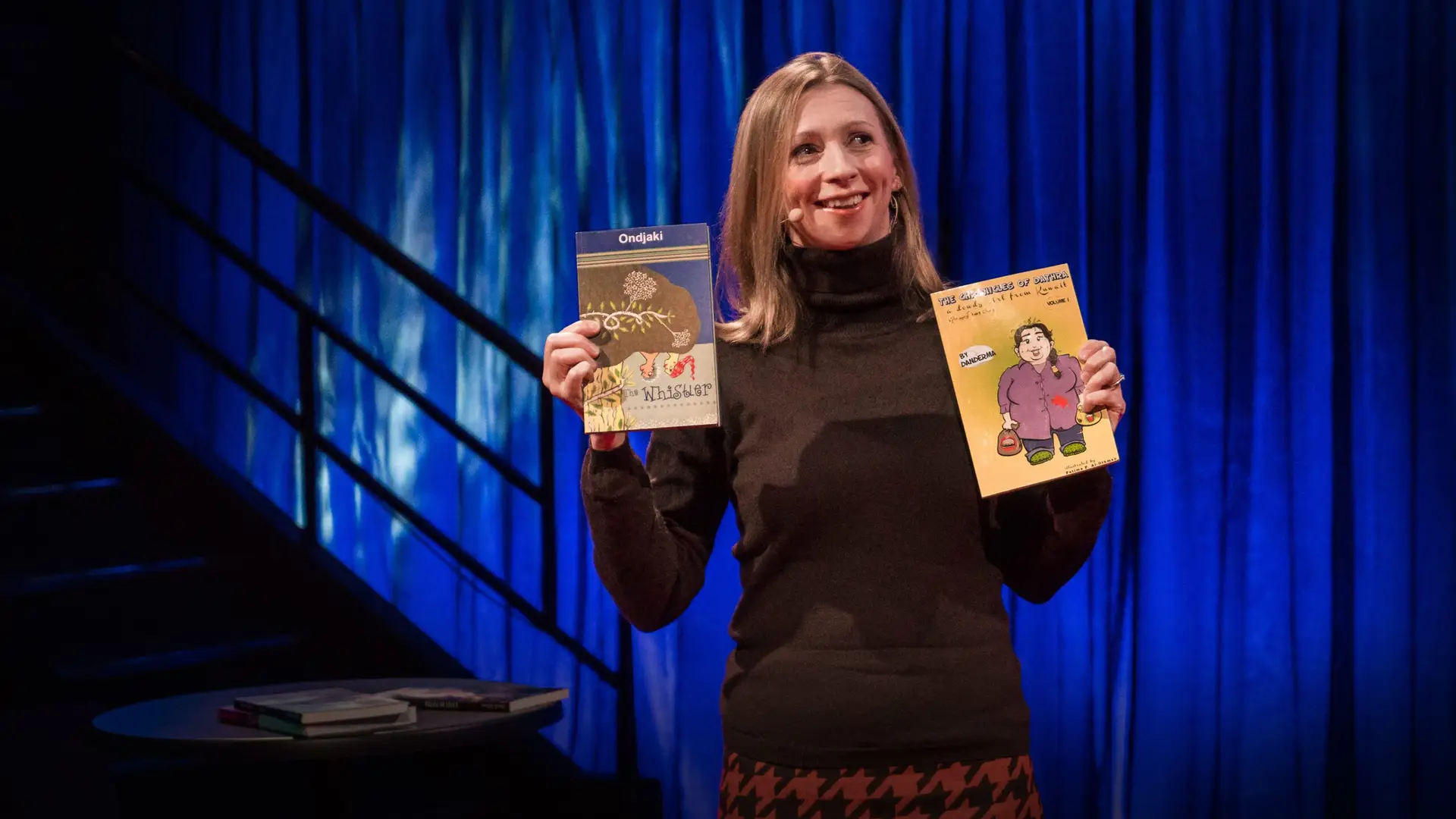
A Year of Reading The World with Ann Morgan
Ann Morgan is an author, speaker & editor. She has written four books and started two blogs, ayearofreadingwomen and ayearofreadingtheworld. She is also a Literary
I love Kenyan music and bands like Sauti Soul, but I came across something even more interesting not too long ago. I discovered the father of Soulful Benga, John Oriwo, better known as Udulele.
Udulele is an award-winning singer, songwriter, producer, and multi-instrumentalist. He is widely recognized as the father of soulful Benga, a sub-genre characterized by the fusion of Benga music with various percussive sounds from East African instruments.
His artistic expression stems from his ability to discover and extract hidden underground sounds, transforming them into a unique musical experience. Udulele also explores futuristic formats, adding an Afro-futurism touch to his compositions.
In 2021, Udulele was honored as one of the winners of the Latin America Green Award for his composition “Piny Maru,” featured on “Ventanas, Vol. 2,” a collaborative project by the Museum for the UN and Voz Terra Colombia.
We got in touch after I listened to his song Biwamiel and it’s an honor to share his work in this interview!
Benga is a popular music genre in Kenya around the 1980s and 90s. This style of music comes from the rural community I’m a part of. But around the 2000s, the genre died out.
I was practicing with my band, Black Progression when we ran into a musician from Luxembourg who was researching Benga music and asked us if we knew about it. Of course, we did, but not that much. We were playing more funk and Afro-jazz.
The second time he came, he wanted to meet one of the Benga icons, which is how I met the legend Osito Kale.
A few years later, we met with Greg Tendwa, who was a DJ and cultural enthusiast. During this time, we had started a Kenyan percussive ensemble (Abakisimba) after Black Progression went under due to group dynamics. After subsequent jamming with Abakisimba and DJ Greg Tendwa , we traveled to Kamba land where we had met a young Benga artist. After jamming with him and doing live music with pre-produced benga beats, DJ Greg decided to coin Bengatronics. Bengatronics eventually branched into music production and cultural music projects, after some of the members left.
Later, in 2018, I embarked on solo acoustic gigs and that’s how Soulful Benga came about.
My dad had a pseudonym known as lele- from the his love of Congolese musician called Mabele.
One of his friends started calling me Udu Makalele , meaning Udu the Son of Lele.
Later, when I started making music, I had a dream in which someone called me Udulele. That’s how I stuck with the name.
Udulele means (a person who will be there) forever.
Yeah, my local language is Luo, but I also write songs in Swahili. I try in English, but mostly just Swahili and Luo.
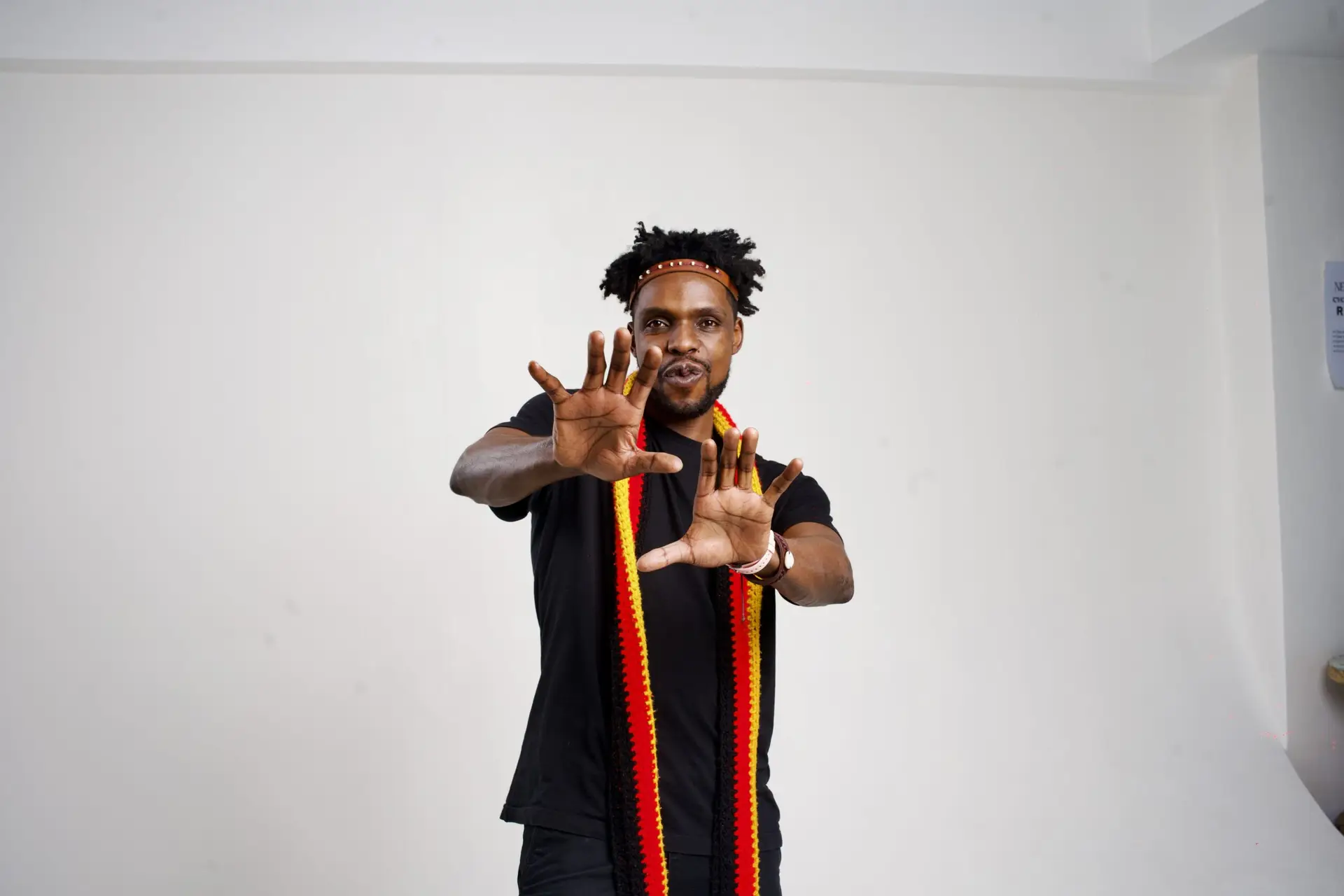
Yeah. For a long time, I’ve been intrigued by spiritual music and traditional music. I think this has influenced how I write my music. I think that’s how the soulful part of it came to be.
And I had the privilege of traveling and meeting a lot of cultural musicians, even before studying Benga. This built me.
My music is not just about being popular, but about getting into the depth of music in a way that music can touch people in a different way. And that’s how I like it.
For sure. If you’re singing in Swahili, because many people understand Swahili, people can relate to you through lyrics instead of just melody and rhythm.
Many of the songs that people love are melodious. They just love the melody and the rhythm, even if they don’t understand it.
But there are also songs that people relate to because of the language you sing in.
Note : here’s more info about desert blues .
Yes, I would say some of the recurrent messages are mostly cultural stories and environmental themes.
In short, cultural stories, environment, nature, and spiritual messages are the recurring themes in my music.
Yes, Koth Chwe is based on a Luo folktale that is also common in other Eastern African regions. I first heard it from my aunt. The Koth Chwe means it’s raining and shining simultaneously.
Back then, my aunt used to tell me that if it’s raining and shining at the same time, then there’s a leopard giving birth down at this tree. Many communities within Kenya or even around East Africa share the same story, but I never really knew the meaning .
Apparently, for some people in some communities, when that happens, it’s a sign of abundance, like many things coming into life, because it doesn’t happen often.
I also feel like stories like this just allow us to see the commonality between us as people. In a way, they help us unite. We might be speaking different languages and living in different places, but they unify us as humanity.
Where I live, you’re being looked on as a provider as a man, and now the only way you can provide is to make some money. So, this story is based on my personal experience.
I was in love with this girl, Anyango, but my music career was not where I wanted it to be yet.
She had a good job, working at the World Bank and all that stuff. So I was just feeling fearful that I couldn’t provide for her. Society will look at you as really just that man who would depend on his wife to fetch for him everything.
So, that’s what the story is about. It’s one for men, because I’m sure this is something that many men face right now, not only in Kenya but also in other places.
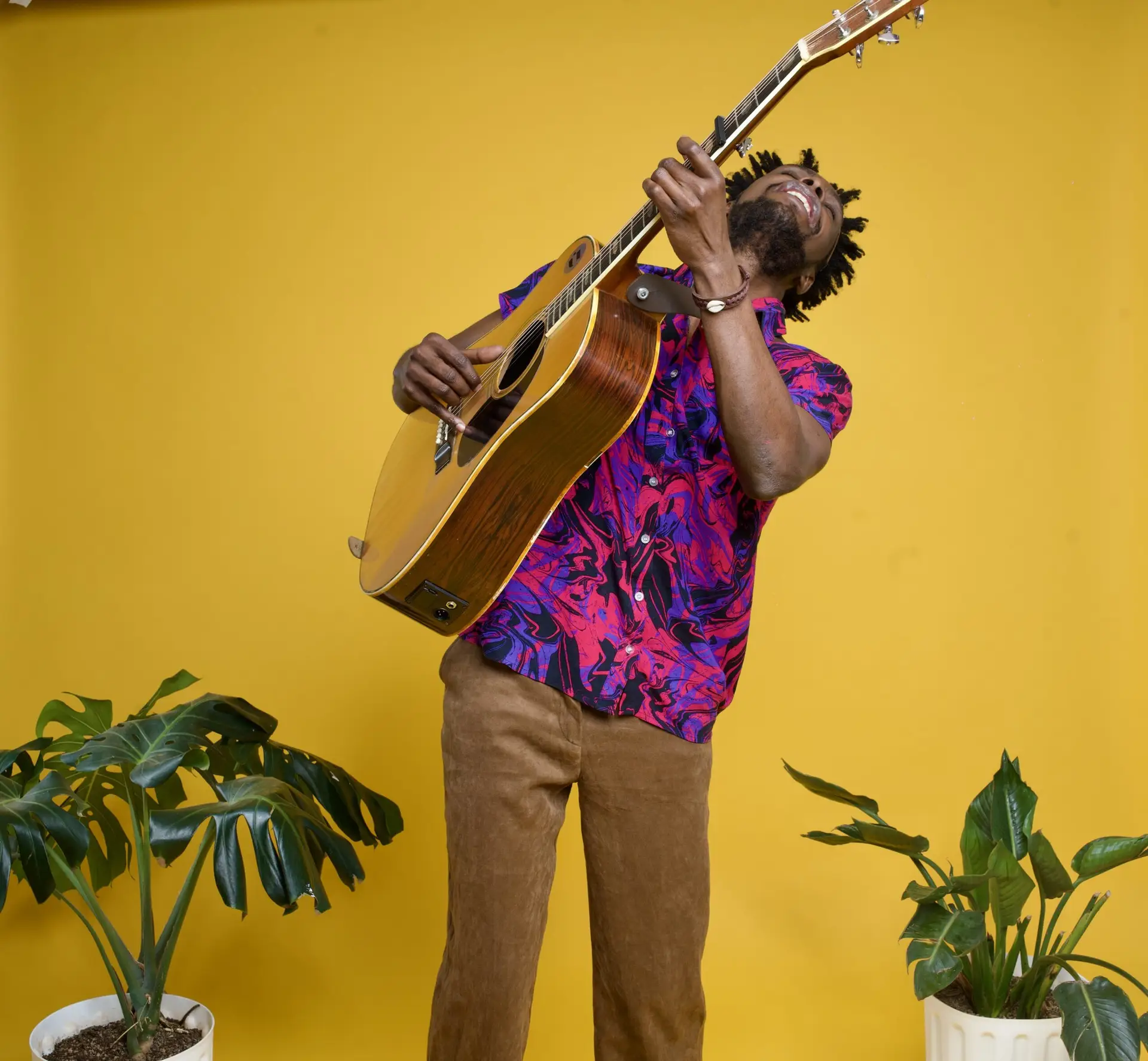
The deeper you go into music, the more you realize there are different ways of generating income. But to be properly skilled in music, that requires a lot of time.
Once you dig deep into the music industry, it might not be like you’re a millionaire, but you always have a place where this money’s coming in. This month, you have a performance. The second month, you maybe didn’t get to perform, but you could get money from streaming or from music licensing to documentaries or movies.
Yeah, that has been my way of surviving in the industry. And I think when big brands start to recognize your work, it opens more (business) models with income opportunities.
One thing I always love to tell people is that as we all have our different paths, some people come into music and make it instantly, other people take more time.
1. First, what direction do you want? Do you want to pursue music? Are you driven by being popular, or are you driven by just getting into your sound first? For me, getting a sound was one thing that drove me to become good. However, there’s no guarantee that things will work fast. For some people, things take time.
2. In my case, it took time. I don’t think that’s the case for everyone. I also advice any musician who wants to create their own sound to invest in learning about their past. Just go into your cultural soul and your cultural music. Get to learn more and have that depth of musical skills that you can share through different ways of writing.
3. At this age, I think it’s important to embrace technology. Technology is here, and if you embrace it, you can use it. We are now going into an age of AI, and there’s fear that, oh, now AI will be writing music, and we, as musicians, will be out of a job.
But I feel like we can also use AI just to create more for our sound. It’s just how we train the AI to do things for us. But you can’t train an AI if you don’t have a sound. You must have a sound first for you to train the AI to create something.
Yeah, I think establishing your niche market is one of the important things. Just be consistent and establish your market. For example, people could throw beer bottles at me because I know there are places where I don’t even need to convince them of my music. They just understand it.These are the places that have really supported my career and paid me.
You also have to ask yourself: Are you willing to take the longer path where you grow with your fans, or do you want instant fans? If you want instant fans, you must ride the popular wave. It might not be like a long-term career, but sometimes, it works for musicians.
In general, though, I think establishing a niche market is essential.
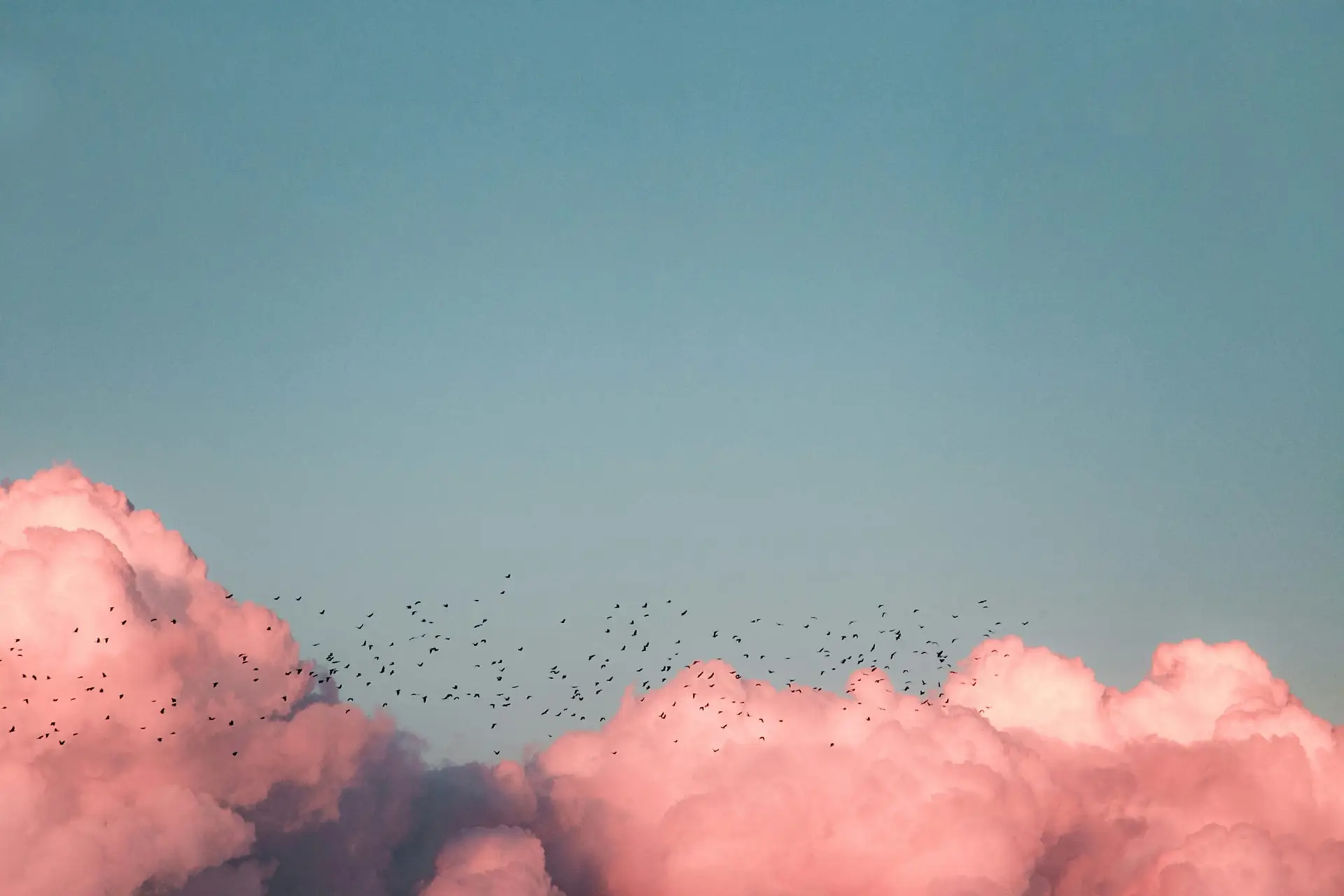
I believe so much in dreams because, in my family, it’s not only me but a few of us; when things happen in a family, it’s me seeing it in a dream or my sister or someone else. I believe dreams can be a parallel world connected to what’s happening.
It will not happen, but it’s definitely happening in another universe connected to us. I also believe if I’m very connected to someone, then it’s easier to access things that will happen in the future in our lives. So, I believe so much in dreams.
Note: I also wrote an article about a special dream after my uncle passed.
Yeah, one of them was when my brother passed away, and I saw this in a dream even before this happened. I’ve also seen other things before they happened.
It’s the same with places. For example, when I traveled to Juba, I’d already seen it even though it was the first time I went there. Even when I was meeting people, we were there, all that stuff. So I’ve seen these things happening a lot, yeah.
Yeah, in our culture, people believe a lot in dreams. You shouldn’t disregard their meaning. Instead, you should listen to them.
In the past, people believed a lot in dreams. You could see a lot of dreams coming true.
Now people don’t believe in them so much because there’s a lot of fusions of other cultures. So people have gotten rid of dreams and I don’t think they play a huge role in our society anymore.
Although I know people experience them, I believe that things you give attention to will definitely come true.
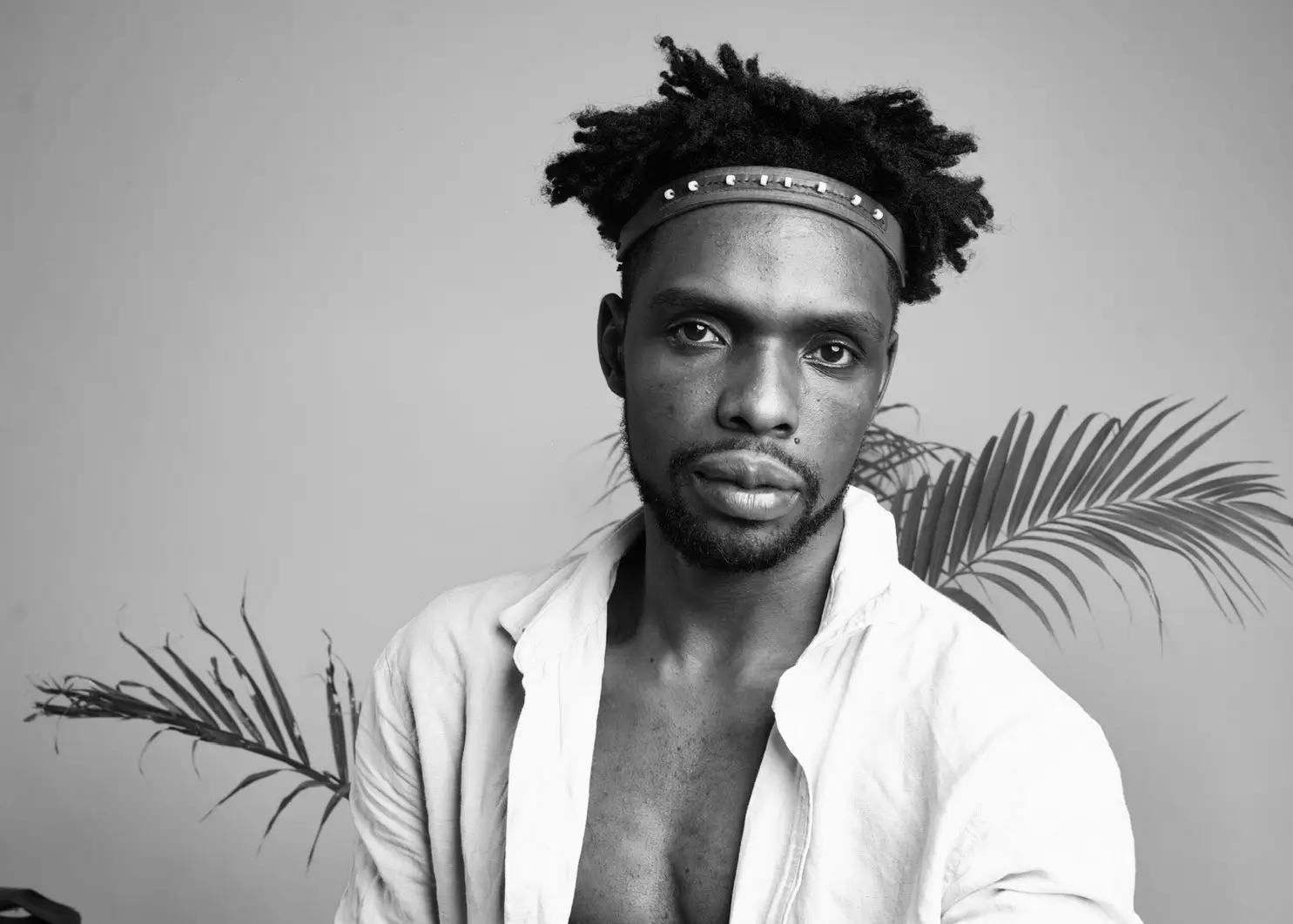
At the start, I learned a lot from Mutinda. Mutinda was one of the Kenyan musicians who reached the stage in the international stage with Afrofusion music.
Some international artists are Richard Bona and Ayub Ogada. What impressed me about their music is that they took it to another level by incorporating their local languages in a way that people could relate to. That influenced my way of being and how I make music.
In Kenya, we have a lot of indigenous sounds. But people have not been exposed to it because it’s not part of popular music. I mean, Afropop music doesn’t represent the richness of Kenyan music. There’s a lot of Nyatiti music, and there’s also the Mwanzele, which is poly-rhythmic music that is gaining traction on coasts, and that’s one of the sounds that people should look out for.
I’ve also been discovering a lot of Northern Borana, Somali, and Eritrean music.
Yeah, my current job is doing music data notation for African music. In addition, you also have genre discussions, where we go through different music genres from Africa. Through that, we are able to educate people more about different African music styles, as opposed to people just knowing only half of it. Most people have just seen the tip of the iceberg.
There are thousands and thousands of genres coming from Africa. We also learn how all these genres are related. That’s one of the things that we are doing at the African Music Library.
Also, at the African Music Library, I help them write and review albums of musicians releasing their music. So it’s more about making people aware of African music in-depth, not just what we see on social media.
They excelled in urban areas, and they also sang a lot of their songs in Swahili. It was easy for them to relate to the people. Regarding their sound, I sometimes love some of the earlier albums, which were more influenced by local music.
As they continued, they started gravitating more towards Afrobeats, which is not a problem for a commercial artist as the primary thing you need to do is sell. I can’t judge them for that.
I think they’re doing brilliant work. They’re also really good musicians. So, personally, I love what they’re doing. They have the capacity now to do things differently because they are popular, so I would love to see them borrow more influences from Kenyan music to share it with the world.
I would say music connects. Music connects irrespective of language and demography. It’s one of the unifying languages we have as a gift from the universe and God.
I would say that music is a language of emotion. As much as it’s an auditory experience, it has a way of speaking to emotions, and emotions don’t know any language. Emotion is emotion. That’s how music impacts life as a way of penetrating emotions as opposed to other arts.
Note: This message is similar to Syrian musician Khaled Alhafez’s advice.
Yeah, for sure. I have a new single called Macho Gololi.
Then, around February, one of the Dutch producers we work with, Sjef Rolet from the duo Umoja, is coming, and we’ll be doing Soulful Benga 2!
If you want to support Udulele, make sure to vote for him as he has a chance to win an International Songwriting Competition! Just click on the link, select John Oriwo (Udulele), which is the 5th option, and don’t forget to leave your name and email above.
Thanks for reading!

Ann Morgan is an author, speaker & editor. She has written four books and started two blogs, ayearofreadingwomen and ayearofreadingtheworld. She is also a Literary
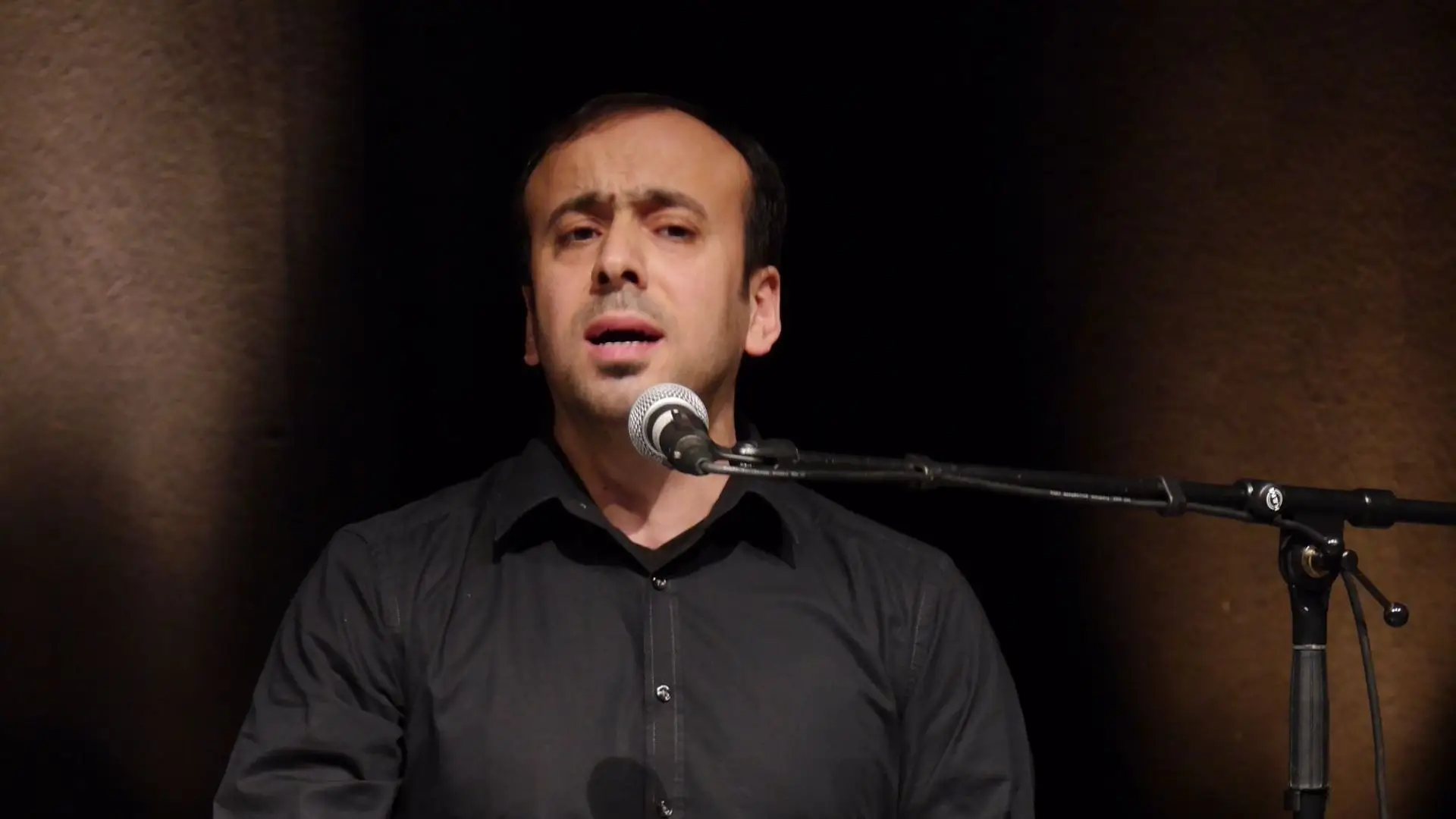
Syrian singer Khaled Alhafez has taken on the life mission of protecting and documenting Muwashshah. But why is it so important, and what is Muwashshah?
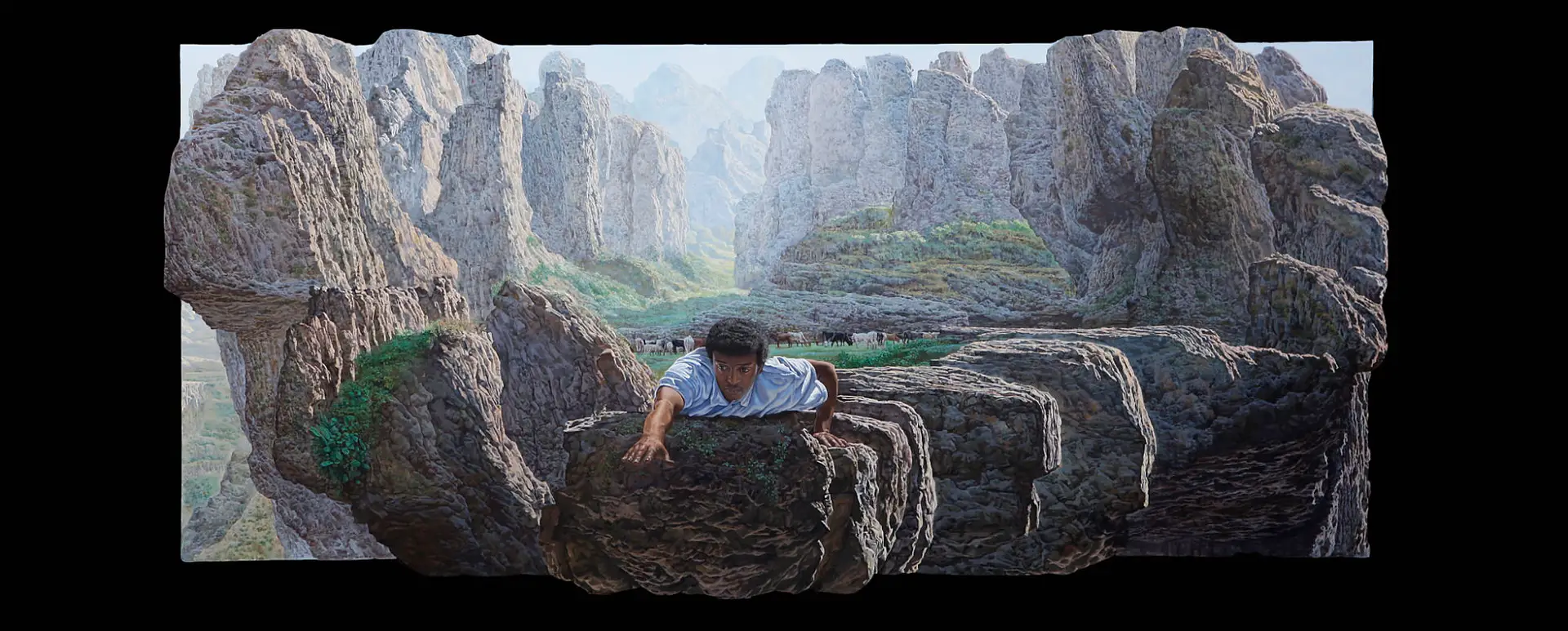
Welcome to a new interview with Ethiopian artist Mezgebu Tesema. Mezgebu Tesema is a contemporary Ethiopian painter recognized for his captivating and lifelike paintings reflecting
